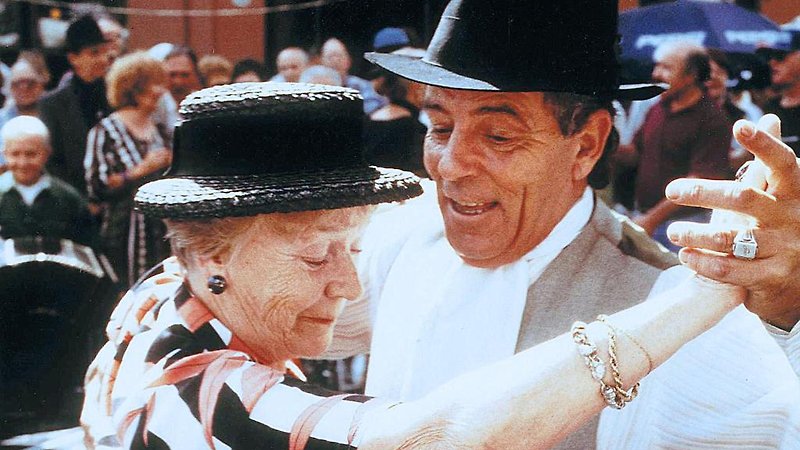An elderly couple's decision to learn the tango leads them far from their cosy rural village. A delightful, intimate portrait of old lovers trying crazy new things.

Screened as part of NZIFF 2008
Swedish Tango 1999
Schwedischer Tango
Elderly Swedish couple Hans and Kerstin Stralström could elevate bickering to an Olympic event. Their quiet life in rural Kiruna is accompanied by the tidal flow of mutual recrimination and insult, frequently interrupted by equally passionate bursts of affection. Anything can become the cause of disagreement - driving technique, the weather - and their time out shopping with girlfriends or steaming in the sauna simply provides them with new audiences for their tales of long-suffering marital woe.
What this couple needs is a hobby, and Kerstin has the bright idea of travelling to Stockholm to learn the tango. Hans reluctantly acquiesces, but once they get there he's the one who becomes infected with enthusiasm for the dance. Kerstin, homesick and with aching feet, just wants to go back to Kiruna; Hans believes they should go to Buenos Aires instead. This time Hans prevails, and the pair head for Argentina. Neither of them speak Spanish, but that's okay, says Hans, because body language is pretty much universal.
This intimate, adoring portrait of old lovers trying crazy new things is a glorious celebration of married life that's also impressively frank about its tensions. Moreover, it's extremely funny, particularly in the scenes where their Argentinian guides speculate on the private lives of their oblivious geriatric charges. Hans and Kerstin are such wonderful characters that director Jerzy Sladkowski would return to document their interior decorating battles several years later in Paradise (also in the festival).
In both films, Sladkowski eschews traditional documentary scene-setting: there is no explanatory voice-over, no formal introduction to the characters, hardly any background material (only an uninterpreted sequence of old snapshots in Swedish Tango) or to-camera interviews. The films are structured like fiction films and they work superbly on those terms, with the protagonists' carefully observed personalities drawing us right into their story without the need for further elaboration. — AL